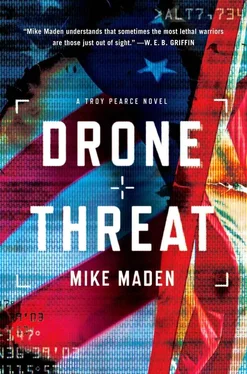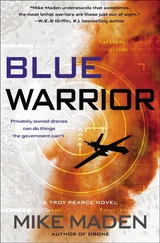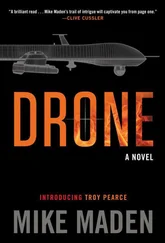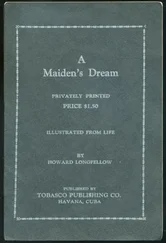“But I’m concerned about your attitudes regarding General Majid. He’s under the impression you don’t approve of his methods, or his governance of the district.”
Early and Pearce looked at each other.
“We’ve been out to the villages. People are scared shitless of him and his men. There are stories—” Early said.
“Think Colonel Kurtz, only without the pajamas,” Pearce interrupted. “Batshit crazy.”
“I read the last two reports you filed with your boss. Quite a colorful edge you put on them,” Chandler said. “Cutting off ears for trophies? Really?”
“I only reported what I saw,” Pearce said. “Did Grainger have a problem with them?”
“No, she didn’t. In fact, she passed your reports up the chain of command and they eventually landed on my desk.” Chandler scratched his beardless chin. “The only problem is that General Majid is on our team.”
“You sure about that?” Pearce said.
“What do you mean?”
“Rumor has it he’s on the Russians’ payroll, too.”
“That’s ridiculous,” Chandler said. “He’s one of ours. His assignment was to pacify the district and he’s done it. We didn’t give him a rule book.”
“Maybe you should have,” Early said. “Ain’t that the whole point of ‘ensuring democracy and freedom’ for these folks?”
Chandler didn’t blink, even though Early was throwing his own speech right back into his face. “You can’t have democracy and freedom without security. Security comes first, and the general is bringing that.”
“Security I get,” Pearce said. “But what he’s doing is called terrorism.”
Early added, “Not to mention the tens of millions of U.S. taxpayer dollars he’s stolen, the public works projects he hasn’t completed but claimed he did — or if they were, they’re half-assed and built with slave labor. Half these people think Hussein was a Santa Claus compared to him.”
Chandler nodded. “I understand your frustration, believe me, I do. But you’ve got to back off on the general.” Chandler looked around the room, lowered his voice. “In case you haven’t noticed, this isn’t America. These people do things differently over here. We’re not here to judge, we’re here to win the war against terror, and for good or for ill, that means partnering with people like General Majid.”
Pearce leaned in. “If you want to win the war on terror, then arrest that terrorist son of a bitch. The Shia around here will call you a hero — and so will half the Sunnis. He’s worse than any of the fucksticks we’ve been chasing down.”
Chandler shook his head. “Not going to happen. He’s Teflon as far as Washington’s concerned. His brother is one of the most important tribal chieftains in the Sunni Triangle. The Pentagon is pushing a new antiterrorism strategy called the Sunni Awakening. We’re going to ally ourselves with all of the Sunnis and use them to help us get rid of AQ and the foreign fighters once and for all.”
“The Sunni chieftains are the ones who’ve been giving us so much hell,” Early said. “We should be hunting those guys down, not partnering up.”
“This is all bigger than the three of us, believe me. I’m just the messenger.”
“And just so that we’re clear, what exactly is the message?” Pearce asked.
“Stop filing your reports. Quit rattling the cage. Just keep doing your jobs.”
Pearce darkened. “That is our job. We’re on a special mission. Grainger’s tasked us with keeping tabs on Majid. He’s the reason why we were sent here to begin with. That asshole has a history, and Grainger wants us to document it so we can press charges and clean this shit up.”
“Not going to happen.”
“Take it up with Grainger,” Pearce said. “I don’t do politics.”
Chandler stood. Pearce and Early didn’t.
“Grainger won’t back you up.”
“Why not?” Pearce asked.
Chandler checked his watch. “Grainger’s been reassigned. About an hour ago she boarded an air force transport. She’ll arrive in Burkina Faso sometime late tomorrow.”
“What the fuck?” Early said.
“The world is full of security challenges. Apparently her superiors at Langley felt that her talents would be better deployed over there.”
“I don’t suppose you had anything to do with it?” Pearce asked.
“Me? Hardly. Like I told you, I’m just the messenger. But don’t be surprised if you find yourselves joining her if you don’t toe the line.” Chandler pointed at the buffet table again. “Help yourselves to more, gentlemen. Otherwise, I’m sure you have a lot to do around here.”
“Yeah, we do,” Pearce said, standing up. Early joined him. The two of them towered over Chandler.
The diminutive congressman wasn’t intimidated. “There’s one more thing.”
“What?” Early said. He saw the press photographer approaching out of the corner of his eye.
Chandler flashed an oily smile and extended his hand. “On behalf of the people of the United States and the citizens of the great state of Georgia,” he said, in his smarmiest southern accent, “I want to thank you for your service.” The whirring high-speed camera flashed like a strobe light, anticipating the moment.
Pearce and Early shook their heads in disgust and stormed away, leaving Chandler’s pale, empty hand hanging in the air. An angry glance from Chandler finally stilled the whirring camera.
Pearce and Early hit the refreshment table, snagging a couple of bottles of cold beer, a carton of Marlboros, and a large bag of Skittles for Tariq before pushing their way through the big bronze doors, headed for another beat-down in the relentless Iraqi sun.
WASHINGTON, D.C.
The Secret Service driver sped through traffic with his emergency lights flashing. Completely illegal, given the circumstances, but when the vice president tells you to do something, you do it.
Arriving a fashionable five minutes late, Chandler was ushered into the ambassador’s spacious office and told that His Royal Highness would be down shortly. Coffee was offered. Chandler took it. He was starved. No telling when he’d eat again.
The ambassador arrived with his male secretary and the coffee service. Chandler stood. The two men embraced. “Clay, it’s good to see you again.”
“And you, Your Excellency.”
“Clay, please. We’re friends. Come, take a coffee and have a seat.” The tall, handsome Saudi steered the vice president toward a luxurious chair. His Royal Highness Ambassador Faisal bin Salman al-Saud dressed and acted like a young Westerner. The forty-year-old prince had attended a Swiss boarding school, graduated from Harvard, and later earned an MBA from Wharton. His Swiss mother’s fair complexion along with his short cropped beard softened his Semitic profile. He was the new, youthful face of the royal house of Saud, with the reputation of a reformer.
“Old habits,” Chandler said. “Forgive me. My grandmother raised me to believe that good manners are a sign of godliness.”
“I defer to your grandmother’s wisdom out there in the world. But in here, please, it’s Faisal.”
“Of course. Thank you again for agreeing to meet with me. I thought our first conversation was extremely enlightening.”
“As did I. I hope we may continue in the same spirit of frankness.”
“I would expect nothing less.”
“Excellent. How shall we proceed?”
“First of all, I want to reiterate that I completely understand the existential threat that ISIS presents to your country as well as mine. President Lane understands it as well.”
“And yet, strangely, he still refuses to commit American combat personnel to the war.”
Читать дальше












